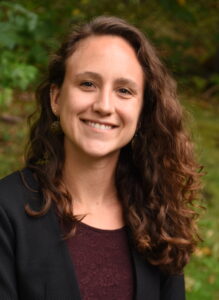Locally Led Adaptation in Bangladesh: Transformation or Normalized Disruption?
 Locally Led Adaptation in Bangladesh: Transformation or Normalized Disruption?
Locally Led Adaptation in Bangladesh: Transformation or Normalized Disruption?
Monday, April 7, 2025
12:15-1:45
200 Center Classroom
Danielle Falzon, Ph.D.
Assistant Professor of Sociology
Rutgers University – New Brunswick
Efforts to adapt society to the impacts of climate change across the Global South are failing. In Bangladesh, commonly known as one of the most climate vulnerable countries in the world, significant adaptation work has been taking place for decades with limited effects. Part of the reason for this is that adaptation work has been carried out by a field of organizational actors that produce projects according to norms and best practices that are not well-suited to effective adaptation. These norms and practices also ensure that foreign funders and international organizations are most privileged in the field and have the most control over decision-making, while local actors struggle to determine their own futures. Recently, a new framework has entered the adaptation field: locally led adaptation (LLA). LLA challenges the prevalent top-down approaches to adaptation and instead asserts that the local people who are impacted by climate change should be the ones leading adaptation projects. In studying adaptation in Bangladesh, I saw LLA’s introduction into the field in 2020, and in 2023 when I returned for follow-up research, I found that everyone was talking about LLA. However, what appeared at first to be a transformative change turned out to be what I call a “logically sound disruption.” I demonstrate how LLA has been normalized into the existing logics of the adaptation field such that actors can adopt a transformative idea without significantly changing their practices. In doing so, I demonstrate the durability of fields, including their resistance to transformative change.